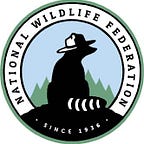Public lands provided“a place where we belonged”
Kathy Kanda is the former communications director for the Colorado Department of Natural Resources, where she worked on a variety of natural resource policy initiatives and coordinated statewide environmental education programs. A Colorado native, she loves to fly fish throughout the Rocky Mountain West and around the globe.
Born in 1916 to Japanese immigrants, my father grew up on a large cattle ranch at the base of the Gabilan Mountains in California — Steinbeck country. My grandfather tended the vegetable garden that fed the rancher’s family and staff. My father told great stories of camping, fishing and hunting in those mountains. An idyllic childhood living the American dream until he and his young bride were forced into a concentration camp during the racist hysteria during World War II. Betrayed by his own government, he grew to be an angry, bitter man, a distant father demanding perfection from his children to inoculate them from what he perceived to be a society in which we were not wanted and did not belong. He worked two jobs, often without a vacation, to secure the future for his children.
But there were those magical times when we would go fishing for a weekend or a week. A consummate outdoorsman, he would seek out abandoned logging roads in the national forests and BLM lands in the Colorado Rockies, where we could camp for a week without seeing another human. Fishing small creeks for small brook trout, listening to elk bugle at night, lying on our bellies to drink unfiltered water from a hidden spring, grilling steaks over a campfire — we were in a place where we belonged. No harsh words were ever spoken on these trips. Every fish caught was worthy of praise.
As my parents grew older, I would take them to the mountains to try to find some of those special places. As the decades passed, increasingly we would be turned away by signs, “Private property. No trespassing.” As what were once expansive public lands passed into private hands, the remaining public lands were transformed into large campgrounds and parking lots filled to capacity every weekend. The rivers of my childhood — the Poudre and the North Platte — once teeming with firm, pink-fleshed trout of six pounds, now stocked with pale-fleshed farmed fish less than half that size. Silence would envelope the car. Dad’s eyes would fill with sadness, his face an expression of defeat.
I mostly fly fish now in hopes that catch-and-release might restore some of our public fisheries for future generations. I have no need to eat them, unlike my elders who survived impoverished childhoods, the Great Depression and wars. I do have a need to spend time in those places where I belong and which belong to all of us. And as I pass along the lessons I learned from my father to his grandchildren and great grandchildren, yes, I will kill a fish now and again to teach them that the life they hold in their hands comes with a tremendous responsibility to both honor the fish and the public lands on which both the life of the fish and their lives depend.
So many of our country’s parks and public lands written about in these love notes would not exist but for the Land and Water Conservation Fund. It’s why Congress should fund the program permanently. Follow the movement along at #FundLWCF. Learn more here.…………………………………………………………………………………….
Would you like to write about public lands that you cherish? Please email Mary Jo Brooks at brooksm@nwf.org for guidelines.
